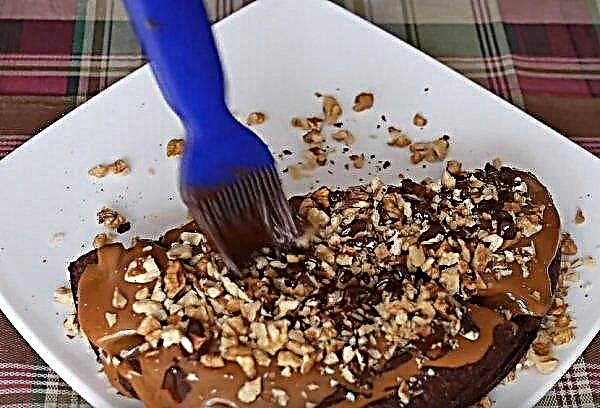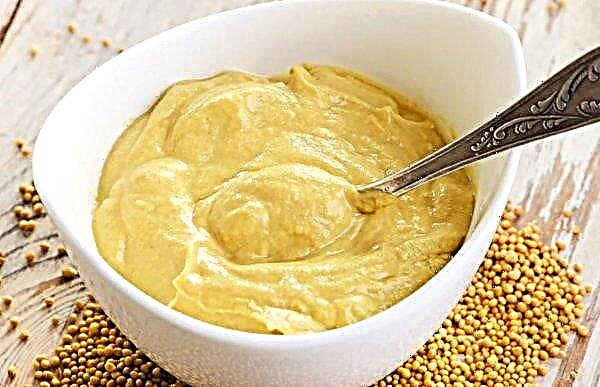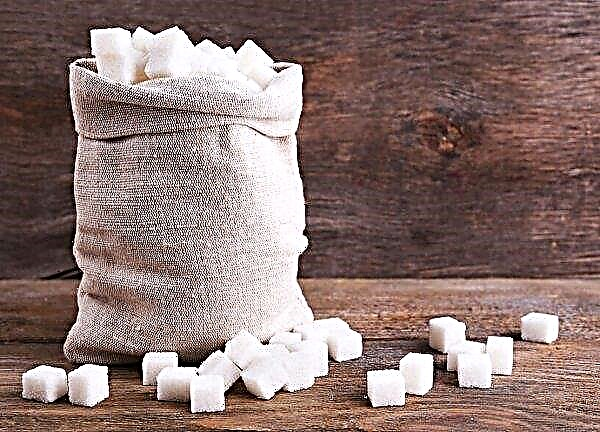Watermelons are a favorite summer treat for many, but not all people know that not only juicy pulp, but also seeds are edible in these huge striped fruits. They are a source of many nutrients and strengthen the human body. In this article we will consider what watermelon oil is, what it is made from and what substances it contains.
How to get watermelon oil
Watermelon seed oil is often found in African cuisine, where it is used as cooking oil. Residents of the Kalahari desert to this day use this oil daily. The manufacturing process is simple. Collected seeds are dried in the hot sun. Drying under ultraviolet rays enhances the activity of fatty acids, which increases their health benefits.
Fatty acids are mainly carbon chains. Doctors say long chains are more healthy. Drying in the sun rebuilds various fatty acids with the formation of long fatty acids and, thus, increases their antioxidant activity. After that, oil is extracted from the seeds, subjecting them to a cold-pressed process. The resulting product is collected and stored for future use. The shelf life of watermelon oil is very high.
Did you know? Watermelon (Citrullus lanatus) — plant of the Cucurbitaceae family, growing in the tropics of Africa, cultivated around the world. Fruits are usually consumed raw. In some countries, fruits are harvested for the winter in the form of pickles, and vegetable oil is obtained from the seeds.
The chemical composition of the oil
A cup of watermelon seeds contains approximately 600 calories, while about 400 calories are made up of healthy fats, such as Omega-3 and Omega-6, and 35% of the total composition is good quality proteins. Also present are hemicellulose, vitamins A, B1, B2, C, PP, pectin, calcium, sodium, iron, zinc, magnesium, sulfur, succinic acid, as well as malic and citric acids.
Watermelon Oil Properties
It is rich in omega-3 and omega-6 fatty acids, helps in the treatment of lipid disorders, improves the health of the cardiovascular system, prevents diseases and complications after illnesses, and has an anti-inflammatory effect. These good fats play an important role in the treatment and prevention of respiratory diseases.
It contains zinc and magnesium - two minerals with anti-aging and antioxidant properties that reduce the effect of free radicals. In addition, magnesium is responsible for the functioning of the heart, contributing to normal blood pressure, and therefore has a beneficial effect in the treatment of cardiac diseases and arterial hypertension.
It is an excellent source of energy due to its high content of carbohydrates and fiber. These fibers help stimulate intestinal motility.
It has antimicrobial properties, which helps prevent the formation of microbes in the human body, and resists bacterial and fungal diseases, such as respiratory infections, diarrhea or gastrointestinal infections.
Important! Dressing salads from fresh vegetables with watermelon oil will give them a new flavor and enrich them with a pleasant smell. It is not recommended to use such vegetable oil for dishes prepared at high temperatures.
Benefit
Small black seeds extracted from watermelon pulp, after cold pressing, produce vegetable oil with healing properties. This product is used both in traditional medicine recipes and in the beauty industry (for moisturizing and softening lotions, creams, masks). Also, an unusual product can be used to prepare various delicious cold dishes.
Harm and contraindications
Watermelon seeds contain citrulline. This substance, which is produced during the breakdown of ammonia compounds and, after processing by the kidneys, enters the urine, along with it it leaves the human body. Typically, citrulline is absolutely not dangerous to humans, but its use is not recommended for people with a congenital disease - citrullineemia, as this can harm their health.
Application features
In addition to the fact that the product effectively acts against cosmetic problems (for external use), it is taken orally for treatment. To obtain the desired effect, you must adhere to the recommended dosages.
Here are a few recommendations on how to take the drug inside:
- Acne Treatment. 0.5 teaspoon of the drug is taken five times a day. The course of treatment is 3 months.
- Prevention of diseases of the stomach, genitourinary system and cancer. 1 teaspoon of the product is taken every other day throughout the year.
- Kidney treatment. 2 teaspoons of the product four times a day 10 minutes before meals.
- Hair strengthening. 1 teaspoon of oil to drink in the morning and evening. The course of treatment is from 2 weeks.
Important! When taking watermelon oil internally, it is not recommended to drink it with liquid or mix it with water. This will minimize the expected healing effect.
In folk medicine
This product is used as the main medicinal ingredients in traditional medicine recipes for the treatment of cardiac diseases, lowering cholesterol, treating kidneys and diabetes.
For the heart and blood vessels
The product contains citrulline, which provides positive dynamics in the treatment of arteriosclerosis, hypertension and angina pectoris. Citrulline stimulates blood flow in the body, which reduces the risk of hypertension. Doctors say that patients who drink oil inside can reduce the amount of antihypertensive drugs they take.
The product contains magnesium, which is necessary for the normal functioning of the heart. The substances contained in the oil also help to normalize blood circulation, improve metabolism and cleanse the cardiovascular system.
The tool counteracts coronary heart disease, helps in the treatment of coronary diseases and controls the pulse.
Did you know? Domestication and selection of watermelon resulted in very sweet, large fruits with juicy pulp and a few seeds. Modern breeders have recently bred completely seedless hybrids.
Lowers cholesterol
Due to the high content of good fats, the formation of sclerotic plaques in the blood is reduced. Due to the content of amino acids such as lysine and tryptophan, the product also prevents narrowing of veins.
Diuretic properties
The oil has a diuretic effect and helps to remove excess water from the body, which reduces swelling and effectively removes toxins from internal organs. Promotes the work of the kidneys, and also helps get rid of stones and sand in this important organ.
To lower blood sugar
It is a natural diabetes control product and should be part of a diabetic diet.
- Here are some of the medical benefits of watermelon for diabetics:
- The product is rich in vitamin A, which is responsible for maintaining the body's cells.
- It is richly saturated with vitamins B1 and B6, which increases vitality and immunity.
- Supports the nervous system, reduces blood sugar, is useful for blood circulation.
- It does not contain fat or cholesterol, which is very important for diabetic nutrition.
Lycopene is found in abundance in watermelon seeds. It has cell enhancing properties and provides protection against ischemia and circulatory problems that are commonly found in patients with diabetes.
Did you know? Juicy and sweet watermelon pulp can be red, pink, white or yellow - the color of the pulp, the shape of the fruit and the thickness of the peel depend on the variety. The weight of the fruit varies from 1–2 kg to 20 kg, the number of fruits per plant is from 2 to 15.
In cosmetology
The oil is squeezed from the seeds of watermelon, it is a very good emollient for skin care: nutritious, with a light texture, penetrates the dermis without problems, is quickly absorbed. It is an ideal substitute for mineral oils, especially in mixtures for the care of children and infants. Unlike mineral oils, watermelon seed oil does not clog pores, allows the skin to breathe and helps in the natural elimination of toxins. Its properties make it ideal for the preparation of baby creams and light emulsions for face and body.
The neutrality of this oil, its nutritional and regenerative properties suggest the use of the mixture on delicate areas of the skin of the face and under the eyes. Suitable for all skin types. Highly recommended for oily and acne skin. It can be used to cleanse pores and block sebum secretion or remove excess sebaceous secretions, thereby preventing the formation of blackheads.
Watermelon seed oil is also a good hair care product, as it is a non-greasy product with a strong moisturizing effect. Its nutritional properties are useful for improving the strength and elasticity of hair.
The properties of the product also make it a good tool for massage and use in aromatherapy. The product is highly resistant to rancidity and can be used both for the production of pharmaceuticals and for pure use.
Important! Lipids contained in watermelon oil are useful for protecting the integrity of the mucous membranes of the human body. This product is used as an anthelmintic and is successfully used in aromatherapy.
How to store watermelon oil
This product is stored without loss of properties (healing and culinary) for two years. As a place for storage, it is best to choose a room with a cool air temperature (not higher than + 18 ° C) to prevent rancidity. Also, the product container can be stored in the refrigerator.
In our country, watermelon oil is an exotic product that is used more often in treatment and cosmetology than in cooking. Watermelon seeds contain many useful minerals and vitamins, have strong medicinal properties, so the oil obtained from them is worthy of consumer attention.












